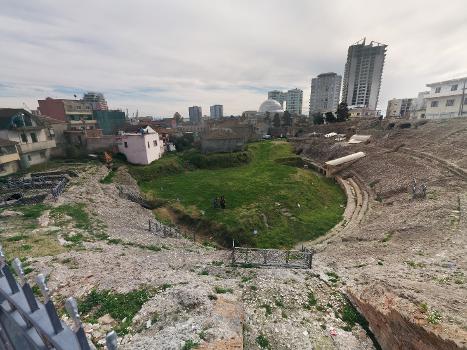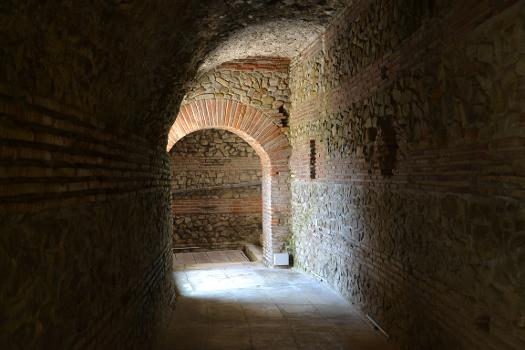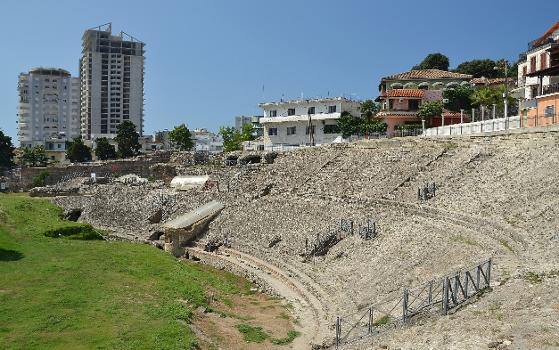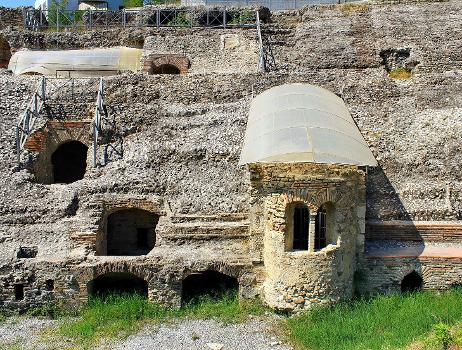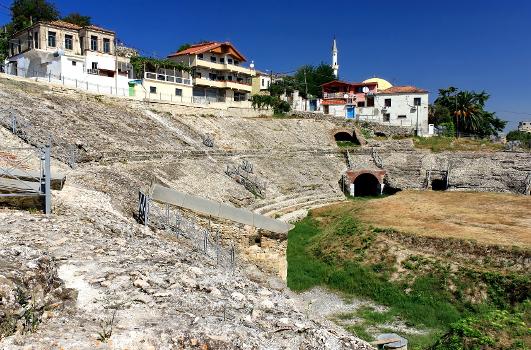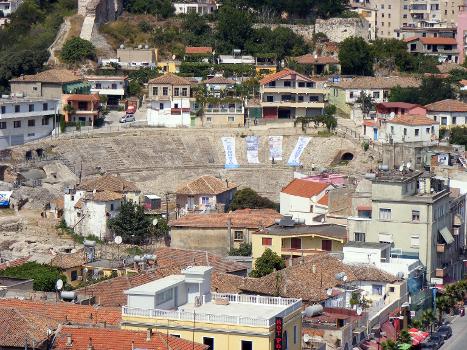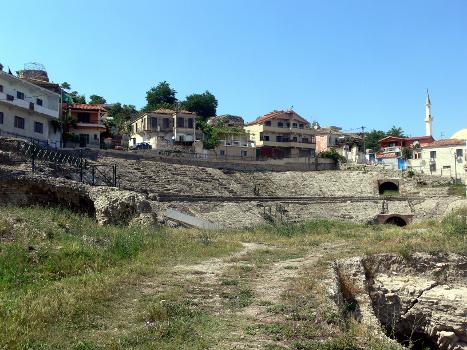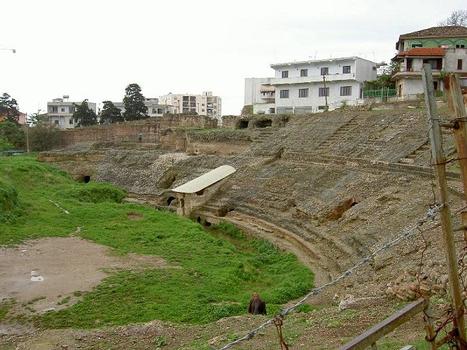General Information
| Name in local language: | Amfiteatri i Durrësit |
|---|---|
| Completion: | 2nd century |
| Status: | in ruins |
Project Type
| Function / usage: |
Amphitheater |
|---|---|
| Architectural style: |
Roman |
| Plan view: |
Structurae Plus/Pro - Subscribe Now! |
| Material: |
Masonry structure |
Location
| Location: |
Durrës, Durrës County, Albania |
|---|---|
| Coordinates: | 41° 18' 44.20" N 19° 26' 41.85" E |
Technical Information
Dimensions
| width | 113.2 m | |
| height | 20 m | |
| length | 132.4 m |
Materials
| building structure |
masonry
|
|---|
Excerpt from Wikipedia
The Amphitheatre of Durrës (Albanian: Amfiteatri i Durrësit; Latin: Amphitheatrum Dyrrhachinum) is a Roman amphitheatre in the centre of the city of Durrës, Albania. Construction began under the emperor Trajan in the 2nd century AD and it was destroyed twice by earthquakes in the 6th and 10th centuries. It is the largest Roman amphitheatre ever built in the Balkan Peninsula, once having a capacity of 20,000 people.
The amphitheatre is included on the tentative list of Albanian UNESCO World Heritage Sites. It was discovered in late 1966, and has since become a popular tourist attraction.
History
The amphitheatre was built in the beginning of the 2nd century AD, and was used for performances until the 4th century AD. The earthquake of 345/346 likely damaged the monument and closed the 'ludii gladiatorii'. An early Christian chapel was constructed on the amphitheatre in the second half of the 4th century. The chapel was initially decorated with frescoes; in the 6th century, mosaics were added. A medieval chapel was built in the 13th century, also decorated with frescoes. The amphitheatre was covered over in the 16th century, after the Ottoman occupation, when a wall was built nearby. Marin Barleti described the monument as 'well constructed'.
About one third of the site was discovered and excavated in the 1960s by Vangjel Toci; the rest was excavated in the 1980s by Lida Miraj. After excavation the amphitheater slowly deteriorated, as no conservation efforts were undertaken prior to the 2000s, and construction continued to take place around the site. In 2004, the University of Parma started restoration work to save the monument.
Site
The amphitheatre has an elliptical shape with axes of 132.4 metres (434 ft) and 113.2 metres (371 ft). The arena is 61.4 metres (201 ft) by 42.2 metres (138 ft) and is 20 metres (66 ft) high. It is built on a sloping hillside, and inside the amphitheatre there are staircases and galleries at different levels. The chapel with mosaics is preserved.
The site currently functions as a museum.
Text imported from Wikipedia article "Amphitheatre of Durrës" and modified on February 10, 2023 according to the CC-BY-SA 4.0 International license.
Participants
Currently there is no information available about persons or companies having participated in this project.
Relevant Web Sites
Relevant Publications
- (2003): An amphitheatre and its afterlives: survey and excavation in the Durres amphitheatre. In: Journal of Roman Archeology, v. 16 ( 2003), pp. 380-394.
- (2017): Dating the mosaics of the Durres amphitheatre through interdisciplinary analysis. In: Journal of Cultural Heritage, v. 28, n. 6 (November 2017), pp. 27-36.
- About this
data sheet - Structure-ID
20058249 - Published on:
15/09/2010 - Last updated on:
10/02/2023

